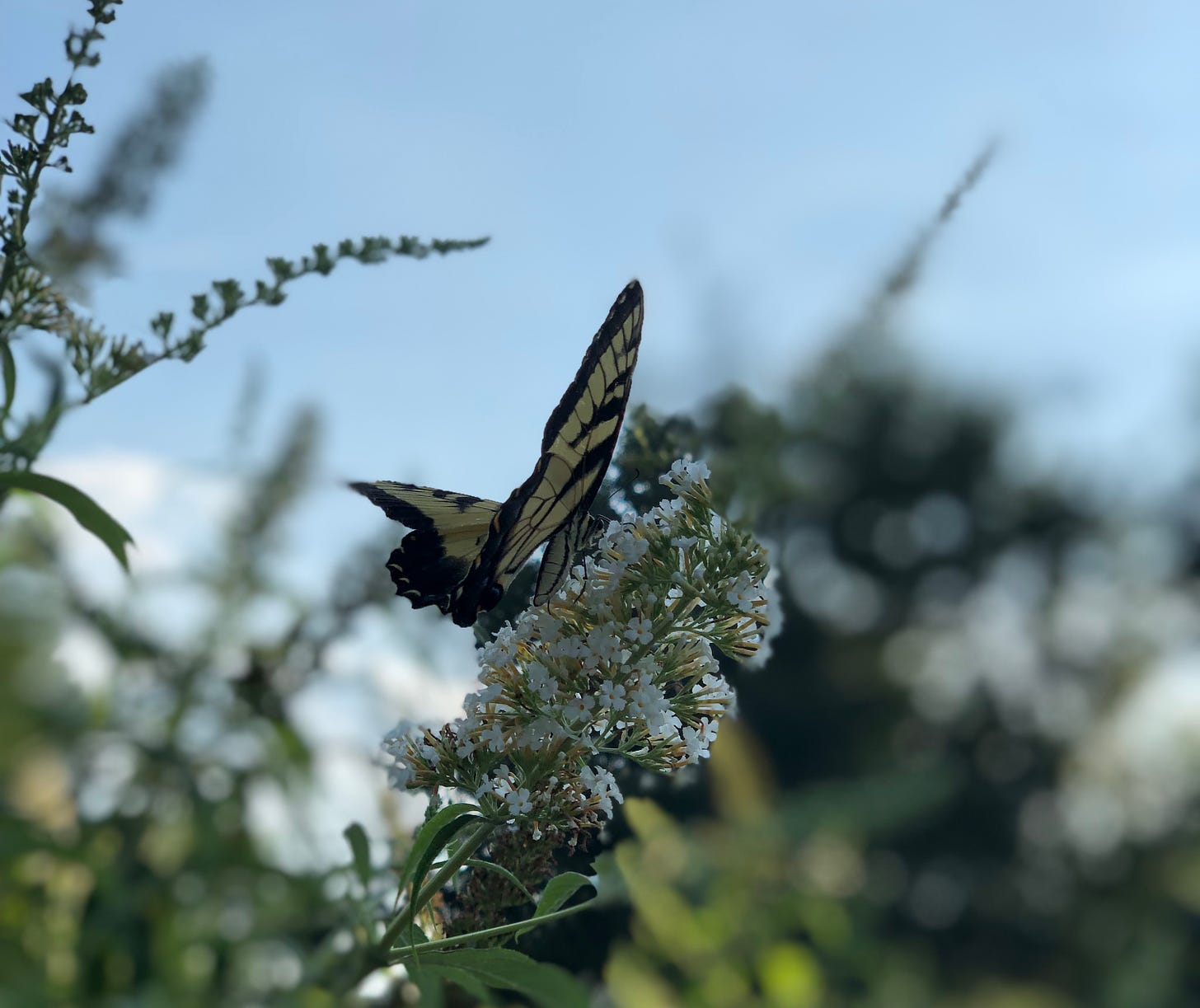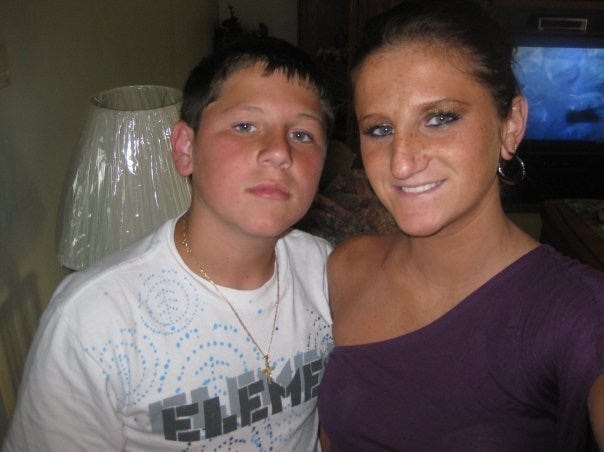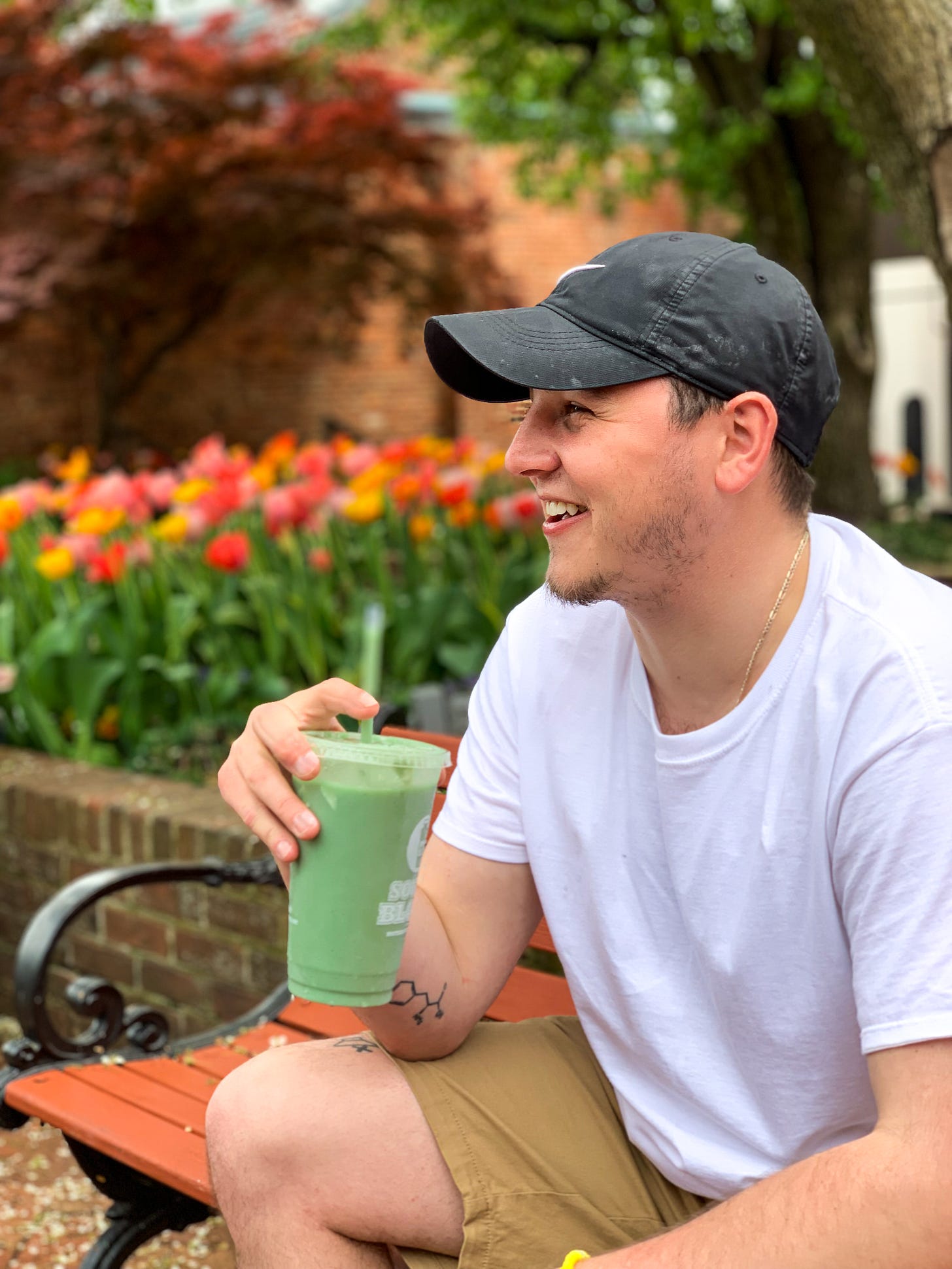Death is not an impediment to life.
The world stood still on Sunday as we all processed the tragic death of nine people.
A quick update: We’re at 341 subscribers, up almost 200 since I began this newsletter in November. I want to continue growing it organically, so the best thing you can do is share pieces and encourage others to subscribe. I haven’t been feeling super great so I took some time to decompress and rest. I wrote this piece about my little break. Earlier today, I had a CF appointment and my lung function is up 4% from December, so turns out I’m doing very well. I’m super excited about this increase in lung function! This newsletter was written while listening to Lane 8’s new album “Brightest Lights.” It’s fantastic, so I encourage you to listen (especially while reading this)!

If death is anything, it’s annoying. It’s annoying that we have to one day die and it’s annoying that others’ deaths and mortality remind us that we’re all, also, going to die. It’s annoying that it interrupts our daily life to remind us that the shit we often think matters doesn’t matter at all. And it’s more annoying than anything because it puts us in the headspace to recognize that we waste so much of our time on that meaningless shit.
We often treat death as an impediment to life; we don’t view it as the closing bracket of our life and it isn't a part of our daily consideration, so we treat the reminder of death as roadblocks to getting back to our norm: perceived immortality. We can be reminded by the tragic death of a superstar athlete that seemed immortal or we can be reminded of death when we hear somebody has cancer. Most of us quiver at the deep consideration of it. We’re told to not fear death; after all, we were all basically dead before we were ever alive.
It’s easy to dismiss death as an inevitability. If we can’t beat death and we can only do so much to prevent it, why worry at all? Is there any good to considering our death? What about the death of our loved ones? It’s irritating to be reminded this existence isn’t forever. We want to be happy with our daily lives, going to work and finding the small joys of life whether that’s a good song, drinks with friends, or a good cuppa joe. But what if considering death allows us to embrace life, feel content, and be better people?
We’re all independently reminded of death in different ways. The word itself seems to carry two opposite connotations: I feel like I’m dying is thrown around casually whenever somebody has a cold; and in my case, It’s been almost two years since my sister died which immediately turns any conversation heavy. Lots of people will say their loved ones have “passed away.” I opt—much to my mom’s dismay—for the word “died.” At the time, it felt like my sister’s death interrupted mine and my parent’s lives. It’s callous to think of it that way, but grief forces your mind into some uneasy realizations. When Alyssa was dying, I was frustrated because my work and gym routines were disrupted. I was sad and confused and angry that her life was coming to an end, but my brain was trying to find comfort and routine provides us comfort. Her death did interrupt our lives. Forever after that day, our lives are split in two: when she was here and when she wasn’t. Her death taught us so many lessons, lessons we’re continuing to learn daily. We all lose people we care about and we all process grief differently. The confusing thing about grief is that there are moments you feel empty and there are moments you feel happy and whole; the most confusing part is that these moments can happen within minutes of each other. The death of a loved one is the most important interruption our lives can have.
Then, there will be days like this past Sunday, when a helicopter crash resulted in the deaths of nine people: Kobe Bryant, 41; his daughter Gianna, 13; John Altobelli, 56; Keri Altobelli, 46; their daughter Alyssa Altobelli, 13; Christina Mauser, 38; Sarah Chester, 45; her daughter Payton Chester, 13; and pilot Ara Zobayan, 50. Kobe Bryant was one of the athletes of my generation, up there with Tiger Woods, Peyton Manning, and LeBron James. His death seemed so impossible because of who he was: a transcendent sports star that didn’t seem capable of dying. His fame was so immense that he hasn’t needed a last name in more than 15 years; the expression “KOBE!” ringing aloud in gyms and schools across the world. Days like Sunday reverberate in ways unlike many others. They are days where the nation—nay, the world—collectively grieves and contemplates existence and what all of this is for. It’s awful that we even need to be reminded of death through tragedy. It seems like we avoid the topic the majority of our lives, only really examining our existence when we have no choice but to talk about it with one another.
It’s even more real when the tragedy is one like this: a retired, still youthful, superstar athlete; parents; and children all perishing in such a horrific way. We mourn by finding ways to relate. We wonder what the parents were thinking as they left the world with children they brought into it; we think about the daily things we do that can end in death such as car accidents; we mourn by imagining the last words we’ve said to people and how we’d regret them if we never saw them again.
Days like Sunday are tragic days; they’re the type of days that people will ask you where you were when you heard the news. What days like Sunday provide us is an opportunity: An opportunity to sincerely consider death. Sincerely, deeply, consider it. It’s okay, on days like that, for us to casually chat about how we want to live or be remembered or how we want to treat each other. Death holds tremendous power over us. We are all going to die, but so many of us are terrified to think about it, going so far as to avoid the word when someone dies, choosing instead to use a term that diminishes its significance or choosing to make jokes about how a mere cold is killing us. It’s terrifying to think of people dying in a tragic way. It’s doubly terrifying to think about how they were parents and children and how their families will live the rest of their lives knowing the tragic way their loved ones died and how they didn’t say enough.
And so, death annoys us. It annoys us because it humanizes us. It forces us to reconsider the way we’re living our lives. Are we saying the words we want to say? What about the words we need to say? Are we wasting our days in jobs we dislike or being upset or mad about things that will ultimately mean nothing? Are we living in such a way that if a highlight reel played at the end of your life, we’d be happy? Are we creating the legacy we want to create?
Then we cover it with layers and layers. We cover it with parables about the afterlife, choosing not to reconcile with these critical truths and instead believing there is an afterlife where we’ll one day achieve paradise. Maybe there is something afterward, a place where all of our souls are together with all of our loved ones in eternal happiness. Or maybe there isn’t. None of us can know beyond a shadow of a doubt whether or not there's an afterlife. When we live according to the presumption that there is something after, we’re robbing ourselves of the opportunity to live the best possible life.

There seems to be a presumption that when we die, we will see how we are grieved. When we believe this about our own lives, we comfort ourselves by believing it’s true of people that have died before us. We believe they can see the way we grieve them. When Alyssa died, my family was showered with love. We were warmed by the humanity we saw from hundreds of people. The stories we’ve heard about Alyssa have been remarkable and have made us feel so proud of who she was and the way she is remembered. But there’s a profoundly painful truth we’ve had to reconcile with: When Alyssa was alive, she was lonely and didn’t feel that love.
Alyssa’s life at the end was dire. She felt like she had nothing to live for, she felt uncared for, she was so disheartened since she couldn’t work a full-time job or move out or wasn’t married, and it broke her heart she’d never be able to have kids. I hope, with every fiber of my being, there is something after and Alyssa was able to see the crater of an impact she left on the world and on thousands of lives. Her spirt rippled outward to everybody who not only knew her but knew of her. Her life is one that she should’ve been proud of, and I think in many ways, she was. But at the end, she was sad.
We choose to avoid these unavoidable truths. We fear that if we let ourselves be too sentimental that we’re depressing or a downer or that we’re exposing ourselves too much. We worry we’re not guarded enough and we don’t want to get hurt by caring too much. We—and also society’s taboo around death—force ourselves to become hardened around the only thing that unites all living things. We fear if we reconcile with death that we won’t live life to the fullest.
Why do we fear reconciling with the very thing that can amplify our lives? Our lives are bettered by our love for others, our acceptance of our circumstances, our ability to embrace whatever is thrown our way, and through our sheer ability to appreciate being alive at all. Life becomes more vibrant, more saturated with color, when it becomes clear that this isn’t forever. It requires us to be mindful. It isn’t depressing to realize that we must find beauty in existence; it’s far more depressing to realize you’re not spending your life in the way you genuinely want to, only to realize it too late.
After Kobe’s death, I saw so many beautiful messages of hope, of saying what you wanted to people you loved, of finding a way to embrace life, and of how we’re all going to be better people. I saw many gorgeous tributes to beautiful Gigi and her bourgeoning Kobe-esque fade away, and to the several other casualties of that terrible helicopter crash.
But the truth is, Sunday wasn’t a day that unlike any other. Sunday just reminded all of us just how near death always is, both for us, our loved ones, and for everybody. That reminder was enough to stop the world for a few hours and to force us to reconcile with the most important truth we can ever learn: We’re not here forever, so we need to stop pretending we are.
And so, I’m asking you, my friend: How are you going to make the best of your life?
Thanks for reading, as always! I hope you enjoyed this lil reminder about life and death. It’s heavy, but I think it’s important we really consider it to better ourselves and our lives. Don’t forget to subscribe if someone shared this with you, and to share if you enjoyed it. Very curious to hear others’ thoughts on the topic!

tl



